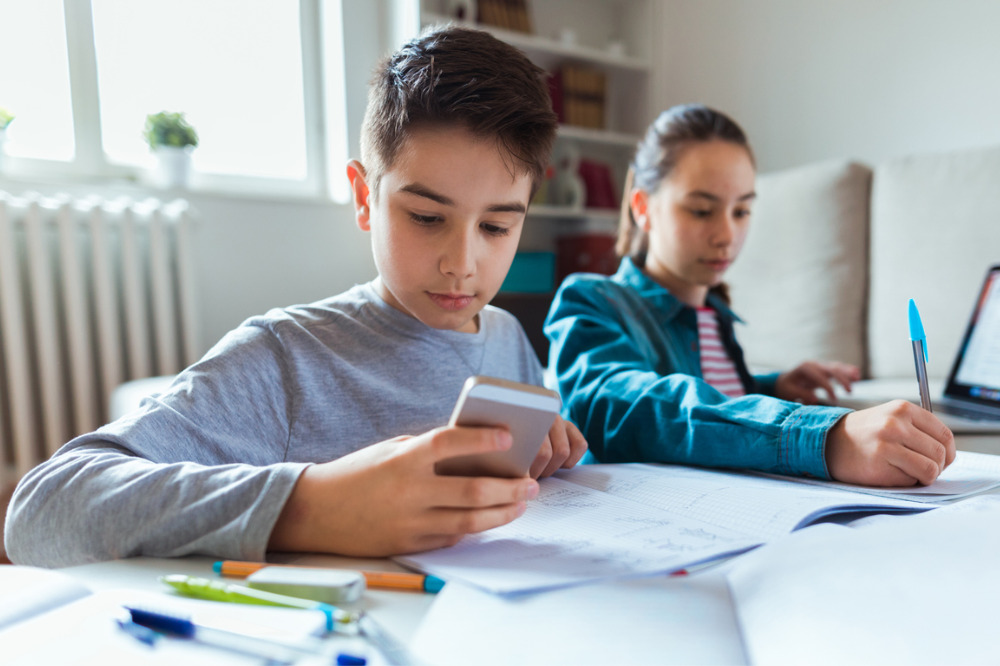
Studies show Australians spend one third of their day in front of screens, and for Americans, looking at screens occupies nearly half of their day.
However, a growing body of research suggests that any more than a couple of hours in front of a screen can have a damaging impact on the brain – particularly when it comes to cognitive functions.
To address this, some states have moved to ban smartphones from classrooms, and some schools have seen a marked improvement in student wellbeing, and academic outcomes, as a result of removing this technology from their classrooms.
Mobile phone bans have been put in place in Victoria, Tasmania, Western Australia, the Northern Territory, and from this term, South Australia.
Under the South Australian government’s new policy, students must keep their phones on silent in a bag or in a locker for the school day.
After looking at the research and conducting thorough consultations with its community, Loreto College Marryatville decided to restrict mobile phones in the classroom in 2019.
“At the time we asked our Year 12 student leaders to work with us in developing a new phone policy as our current one was not working as many girls were on their phones throughout the day,” the school’s principal, Dr Nicole Archard, told The Educator.
“The feedback from the girls was rather than changing our policy with regard to girls being allowed to access their phones at school, the girls wanted us to uphold our policy of no phones at school.”
Since then, says Dr Archard, students have seen numerous health, social and academic benefits.
“Girls are now able to feel comfortable participating in social interaction without needing the crutch of their phone,” Dr Archard said.
“This also assists with student well-being where for school hours, students don’t need to worry about ‘who is liking what’ photos on Instagram. Instead, they can engage with each other through conversation and being more physically active.”
A key component to Loreto College’s integration of the ban was implicitly teaching students responsible phone usage.
This important topic is a core focus of the school’s Social, Emotional and Academic Development (SEAD) Program where students not only reflect on positive phone usage but how to keep safe online and deconstruct the many images they will see online so that they do not judge themselves against them causing further mental health issues surrounding body image.
Phones remain welcome in the classroom but only when directed by the teacher for a learning purpose, reinforcing positive and responsible phone usage amongst students.
Dr Archard believes supportive well-being and curriculum programming are crucial to ensuring an effective transition to the SA public school phone ban.
“We have seen a profound impact on student wellbeing as a result of our phone ban policy and implicit teaching of responsible phone usage as part of the Loreto College SEAD Program,” she said.
“When you walk around the playground at Loreto at recess or lunch, you won’t see groups of girls gathered around with their faces glued to their screen, instead you will see them practising the dying art of holding a conversation.”


